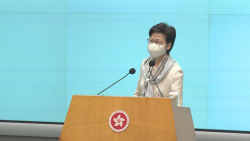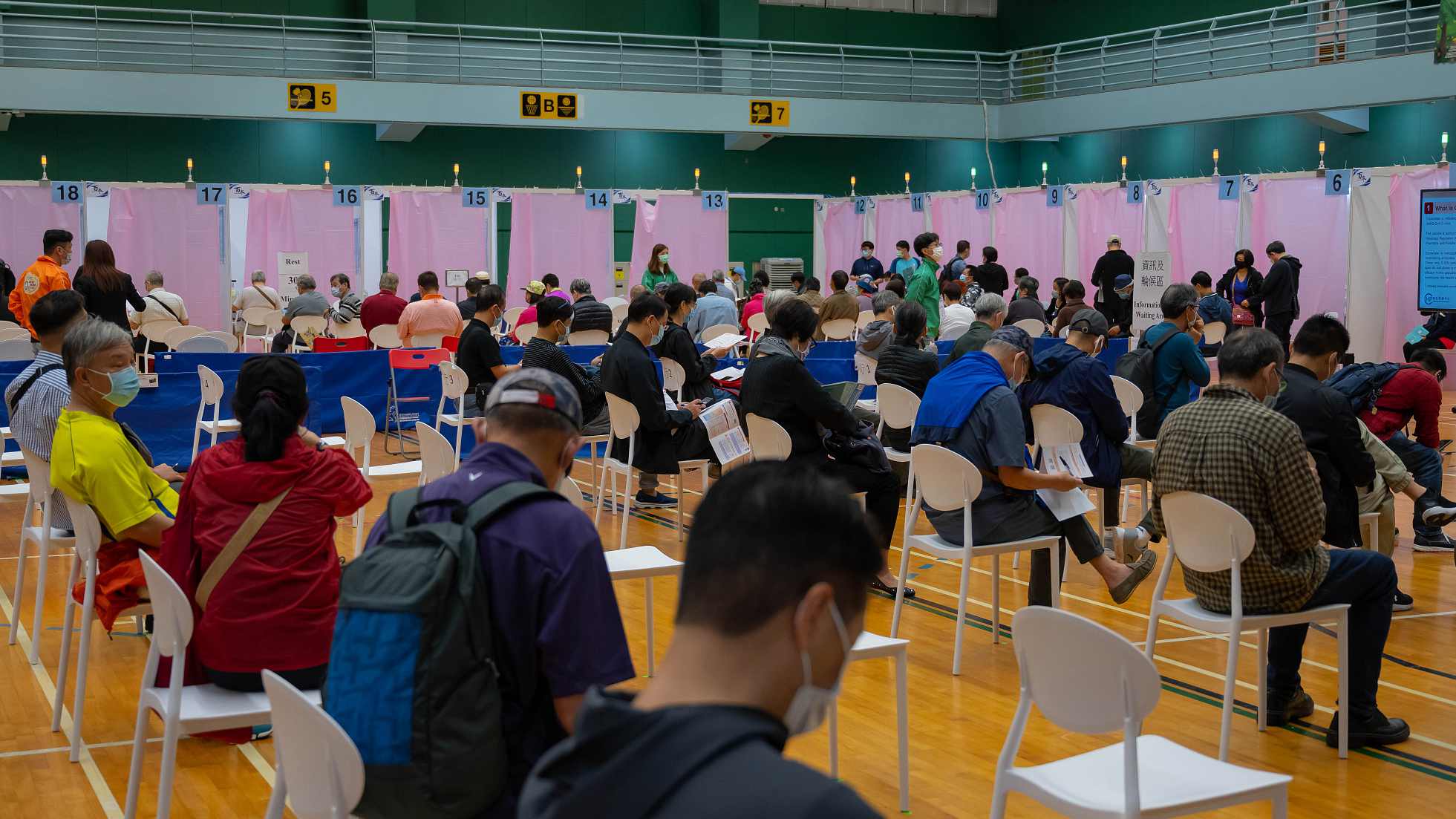
Editor's note: Kong Qingjiang is the dean of the School of International Law at the China University of Political Science and Law. The article reflects the author's opinions, and not necessarily the views of CGTN.
After a long period of elaboration, the National People's Congress (NPC), China's top legislature, adopted a draft bill to improve the electoral system of the Hong Kong Special Administrative Region (HKSAR), which covers the elections of the Chief Executive and the Members of Legislative Council.
The thrust of the improvement is to ensure that the patriots administer Hong Kong and that an executive-led system be firmly in place. With the new electoral system, the Chief Executive and the patriotic legislators to be elected would be fully able to implement the "One Country, Two Systems" policy with the support of Hong Kong people, which is necessary for the development and prosperity of the HKSAR.
The past years have witnessed chaos in the Legislative Council election and the District Council elections in the HKSAR. Some radical forces had attempted to turn the elections into a process of splitting society and paralyzing the legal system and administrative functions of Hong Kong in an attempt to detach elections in Hong Kong from the development of the HKSAR.
Some have gone so far as to deny the State's sovereignty and its exercise of sovereignty over Hong Kong and even advocate or support "Hong Kong independence" or commit other acts endangering national security while appealing for the interference of foreign countries or external forces in Hong Kong affairs.
No conclusion can be made of the fact except that there are big loopholes in the electoral system of Hong Kong, of which a formidable number of people are trying to exploit loopholes.
Against the backdrop, it is projectable that continual chaos could be anticipated in the upcoming elections if the current electoral system were to remain unchanged. Therefore, it is the right time for the HKSAR's electoral system to be improved.
While the deficiency of the electoral system has been identified, any government responsible shall move to act. Ironically, while the Central Government, which has the sole responsibility of overseeing the HKSAR under the Constitution of the People's Republic of China, is doing its part to mend the deficiency, there have arisen doubts as to the legitimacy of such legislative move of the NPC.

Hong Kong residents wait to receive COVID-19 vaccine in a community vaccination center, February 26, 2021. /CFP
Hong Kong residents wait to receive COVID-19 vaccine in a community vaccination center, February 26, 2021. /CFP
Article 5 of the Basic Law, which generally provides that the socialist system and policies shall not be practiced in the Hong Kong Special Administrative Region, and the previous capitalist system and way of life shall remain unchanged for 50 years, is often cited to support their doubts. As a matter of fact, the Basic Law only refers to the previous capitalist system and way of life, which shall remain unchanged. It does not convey the message that nothing can be changed.
In addition, there exists a misunderstanding that the National People's Congress cannot enact legislation for the HKSAR during the 50 years. Indeed, Article 2 of the Basic Law provides that "the National People's Congress authorizes the Hong Kong Special Administrative Region to exercise a high degree of autonomy and enjoy executive, legislative and independent judicial power, including that of final adjudication, in accordance with the provisions of this Law."
But, Article 2 does not specify that the HKSAR is delegated the exclusive power of legislation by the NPC. As a matter of fact, as China is a unitary country, all the power to govern derives from the Central Government. It does not hold that with Article 2 in place, all the power belongs to the HKSAR. Therefore, the NPC is rightfully exercising its due legislative power by amending the electoral system of the HKSAR.
In conclusion, the recent legislative move is made in light of the real conditions of Hong Kong and the long-term interest of the HKSAR. Its necessity and legitimacy regarding the electoral system of Hong Kong leaves no room to be questioned. It is expected that, as Chief Executive of China's HKSAR Carrie Lam vowed, the new legislation will be faithfully implemented by the HKSAR government and supported by the Hong Kong people in general.
(If you want to contribute and have specific expertise, please contact us at opinions@cgtn.com)

